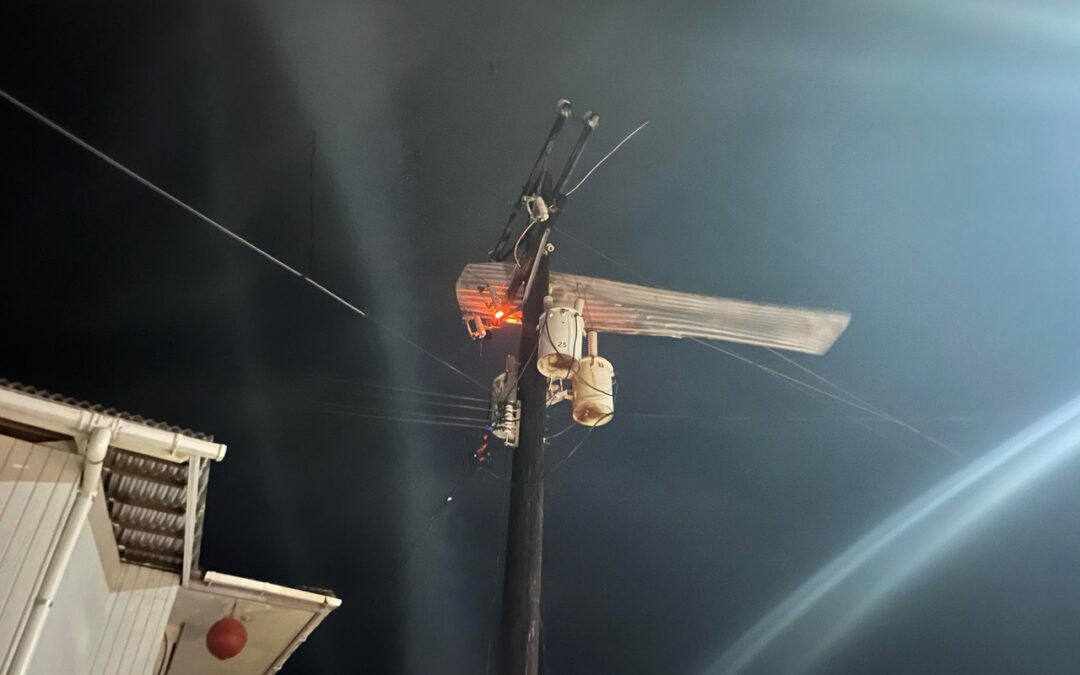Majuro, Marshall Islands – Over the course of last Friday and Saturday evening, MEC was faced with a series of power outages resulting from the severe weather conditions reminiscent of a typhoon that struck on Friday night. The strong winds caused significant damage, dislodging roofing tins and hurling them towards overhead power lines in multiple locations, while also leading to the collapse of tree branches onto power lines in other areas. These events compounded the disruptions across Majuro, presenting a major challenge for MEC to address.
This short report provides a summary of the impacts, challenges, and damages wrought by the storm.
A Struggle against the Elements
The storm’s ferocious winds unleashed a chaotic assault on the island, forcefully dislodging roofing tins from homes. These airborne sheets of metal became destructive projectiles, being caught in the overhead power lines and poles in numerous locations. Each collision sparked disruptions in the power supply, culminating in a crippling island-wide blackout. The relentless wind also snapped tree branches, sending them crashing onto power lines in other areas, further compounding the widespread distribution issues.
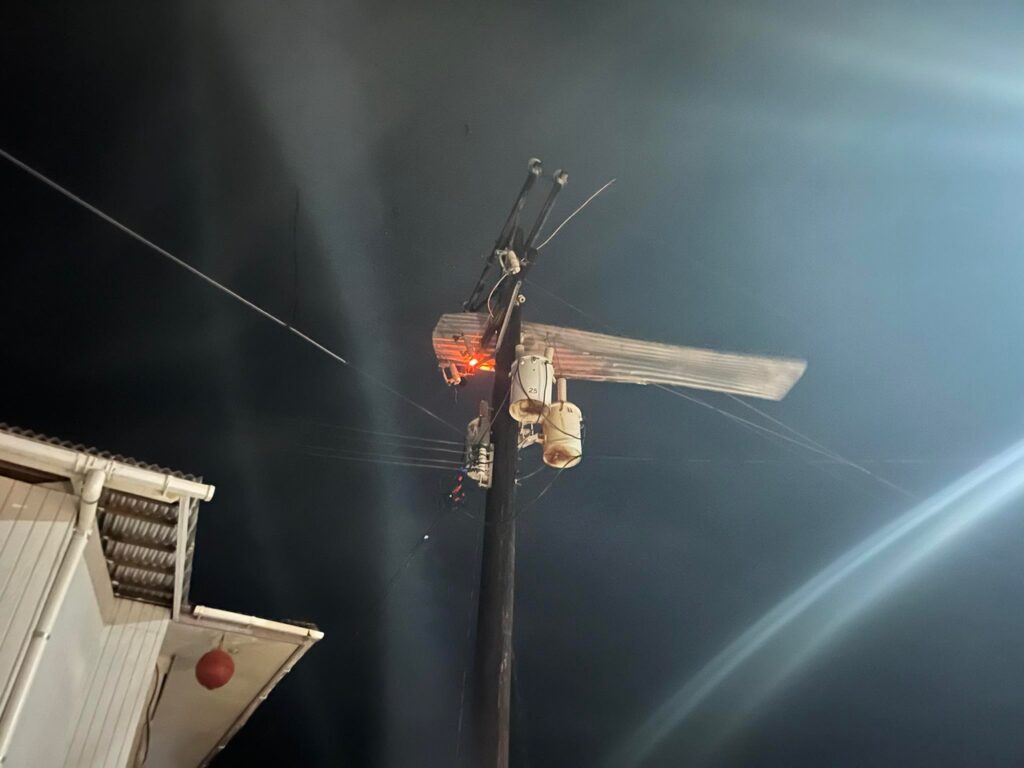
Moisture Inflicted Havoc on the Distribution Control Systems
The torrential rain accompanying the storm created an additional set of challenges for the distribution network. Moisture seeped into the Vacuum Circuit Breakers (VCBs), which are integral components of the distribution control systems.
As the rain poured incessantly, our infrastructure bore the brunt of the deluge, leading to the infiltration of moisture into the VCB components. When power was gradually reinstated, the moisture-induced failures in the VCBs led to electrical line burnouts, complicating the already arduous restoration process. That is why power on Feeder 2 tripped several times on Friday night. Locating and replacing the damaged cables amid the chaos presented a significant challenge to our dedicated team of technicians and engineers, which had to resolve the issues either by bypassing or temporary fixes, to allow power restoration to continue.
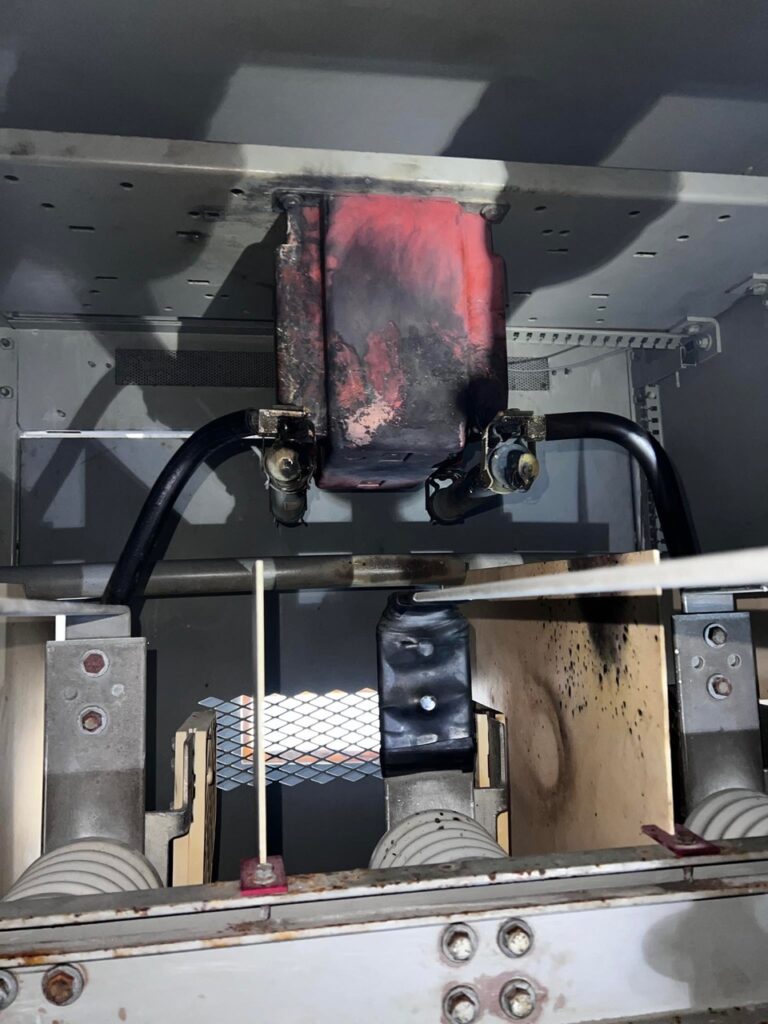
Compounding the situation, our distribution crews discovered a burnt lightning arrester the next morning near the residence of the late President Tomeing. Lightning arresters are designed to protect electrical systems and equipment from the destructive effects of lightning strikes and electrical surges by safely diverting excess electrical energy to the ground. The cause of the lightning arrester’s failure remains unknown, adding another layer of complexity to our recovery efforts.
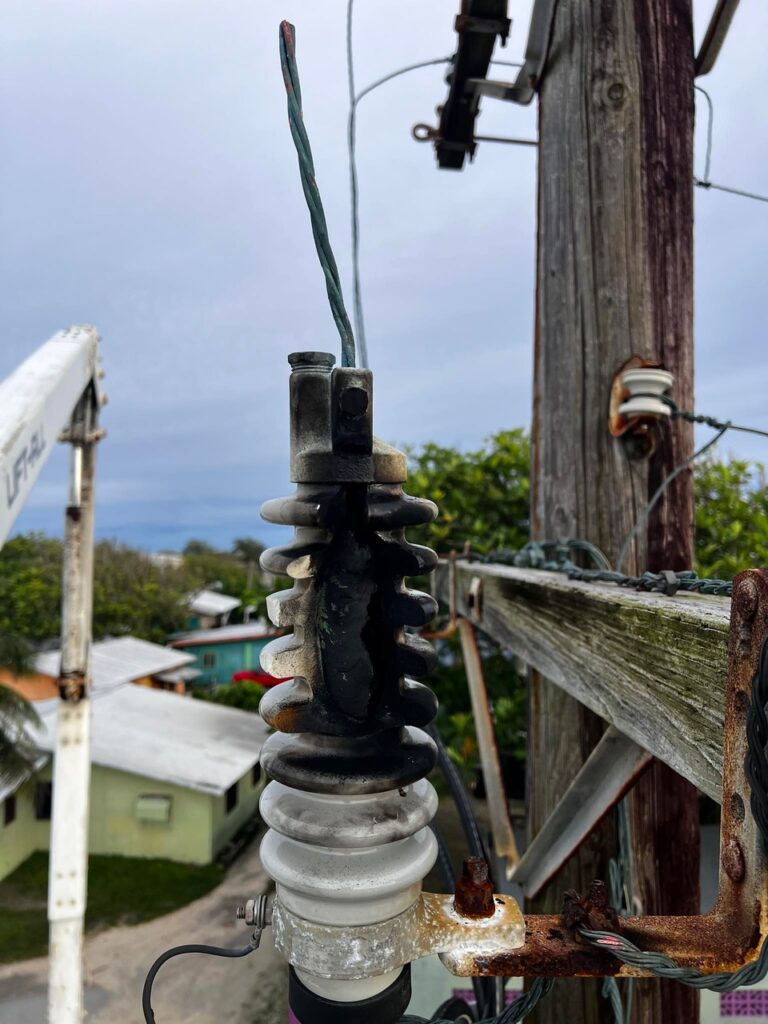
Tracing the Source of the Problem
Identifying the reason for the burnt cables at various locations became a daunting task. The extensive damage, combined with moisture-induced complications, made it exceptionally difficult for repair crews to pinpoint the exact locations of the burnt cables. This delay in detection and repair extended the restoration process, resulting in prolonged power disruptions for our community.
Our current distribution system, plagued by outdated and obsolete protection relays and components, struggles to detect faults and disturbances accurately. Locating a technical fault in this antiquated system is akin to finding a needle in a haystack.
Fortunately, MEC is actively addressing this issue. We are in the process of procuring an advanced digital protection system for our distribution network, funded by generous grant funds from the Asian Development Bank (ADB). This cutting-edge system promises to significantly enhance the resilience and responsiveness of our infrastructure. Designed to swiftly detect faults and disturbances, it can pinpoint their relative locations with reliable accuracy and efficiency. Leveraging state-of-the-art technology and advanced algorithms, this system will enable our team to proactively identify and resolve issues, minimizing service downtime and optimizing the reliability of our distribution network, even in adverse weather conditions.
By investing in this innovative solution, made possible through ADB’s support, we are committed to providing our community with a more reliable and robust power supply, ensuring we are better prepared to face future challenges.
The Downfall of a Containerized Generator
Moisture also compounded our generation issues by contributing to the breakdown of one of our containerized generators. On the stormy night in question, power plant operators urgently contacted MEC’s electrical engineer to report smoke emanating from the containerized CAT2 generator.
The primary damage appears to have been caused by a flashover at the rear of the main circuit breaker while it was under load, likely due to the high moisture content in the air. This incident resulted in fire and smoke damage to various components inside the generator’s alternator and control panel.
The full extent of the damage has not yet been assessed. A thorough evaluation will require the removal and disassembly of the alternator and control panel. Based on past experiences, we anticipate that this generator will be out of service for at least six months to accommodate the ordering and shipping of necessary parts and the commencement and completion of repair work.
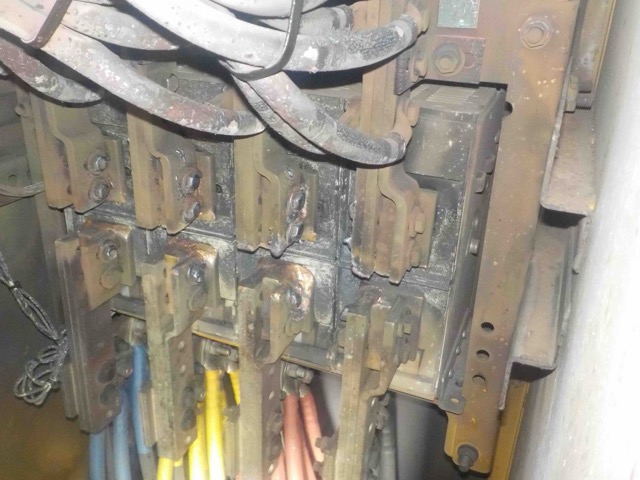
In conclusion, the generator’s failure and the multitude of distribution challenges have starkly highlighted the vulnerability of our generation equipment and distribution system to adverse weather conditions. These incidents not only expose the vulnerabilities but also underscore the urgent need for upgrades to our equipment and grid infrastructure, as well as the implementation of robust protective measures to ensure the reliability of our power supply.
MEC is truly sorry for the inconvenience caused by the power outages and acknowledges the impact they had on our customers. We are committed to improving our public notifications and providing timely updates on power outages to keep our community well-informed.
The events that unfolded over the weekend serve as a poignant reminder of the urgency and importance of fortifying MEC’s electrical infrastructure, bolstering resilience, and equipping ourselves to face any future adversities, which are becoming more frequent and intense due to the growing effects of climate change.
